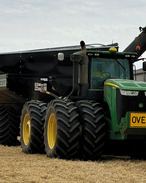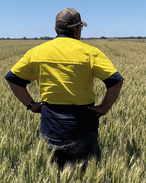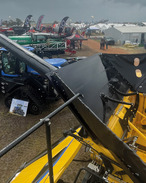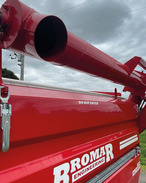This article is 4 years old. Images might not display.
With children staying home amidst the COVID-19 measures, children will be living, playing and occasionally working on their family farms. During this time it is more important than ever to ensure children are safe and free from any serious or fatal injury risks.
This can be achieved by creating safe play areas, assigning appropriate farm tasks and having safety conversations with children often.
There are a range of health and safety risks for children on farms, with statistics showing that the main risk of serious injury and fatality are:
Drowning
Drowning is the leading cause of children death on farms, with dams being the most common place children drown.
Farm vehicles
There are many cases where children have been seriously injured or killed when operating farm vehicles. Children should only ever operate age appropriate equipment based on the vehicles manufacture's advice.
Machinery and attachments
All farm machinery can have potentially fatal consequences if used by children. Younger children are more likely to suffer injuries whilst playing on or near tractors, whereas older children are likely to be injured while driving or carrying out farm tasks.
Livestock
Children can lack the judgment to deal with animals safely. A child might not have the size, speed and understanding of how to get out of the way safely.
Other hazards
Other hazards that may cause injury to children include falls from heights, silos, chemicals, contact with electricity, noise and firearms.
Children can be kept safe by creating a safe play area with no hazards. Securely fence the house yard to define boundaries between safe and unsafe areas. Ensure children are always supervised when outside and create an ‘out of bounds' area around silos, loading areas, machinery, power tools and stock yards.
Ways adults can effectively reduce risks to children on farms include making sure children wear seatbelts when in any moving vehicle, using safety guards on all machinery, limiting children access to unsafe areas around the farm and making sure children know what to do in an emergency, including what to do, who to call and where to go.
Also, only allow children to drive age-appropriate vehicles (for example, motorbikes which are appropriate for their age and height).
The National Centre for Farmer Health has more information and several fact sheets available at https://www.farmerhealth.org.au/page/safety-centre/child-safety-on-farms and WorkSafe is also a great source of information: www.worksafe.vic.gov.au/children-farms






















